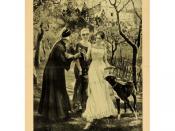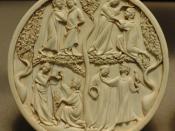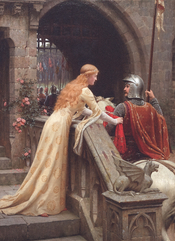Courtly Love
by Harris Bin Munawar
On Love & Courtly Love:
According to Andrew the Chaplain, the founder of the formal doctrine of courtly love, "Love is an inborn suffering proceeding from the sight and immoderate thought upon the beauty of the other sex, for which cause above all other things one wishes to embrace the other and, by common assent, in this embrace to fulfill the commandments of love."1
Indeed for many centuries in the Middle Ages and earlier, probably since the time of the ancient Greeks, love has been known to be a physical and mental affliction.2 Interestingly, physicians have regularly offered treatments for the lovesick. William of Gaddesden, one of the authorities known to the Physician in Chaucer's General Prologue, treated it only briefly in his medical textbook, since, as he warned his students, "but little money can be made from this disease."3 Alain Chartier in the fifteenth century and Shakespeare4 in the sixteenth objected, "Men have died...
and worms have eaten them, but not for love."5 Nevertheless, in the seventeenth century appeared the definitive medical study, Eratomania, which filled 336 large pages, and Robert Burton devoted over a quarter of his huge Anatomy of Melancholy to the problem of love sickness.6 Even in the early nineteenth century some of John Keats's friends thought that the first symptoms of an illness from which he suffered were due to his languishing for unrequited love.7
Courtly Love, however is a much more passionate form of love, and if we go by the concepts of the abovementioned physicians, a more fatal form of the disease. As a doctrine, Courtly Love is a method of love according to the rules set down by Andrew the Chaplain in his famous book, A treatise on Courtly Love. A general concept...


